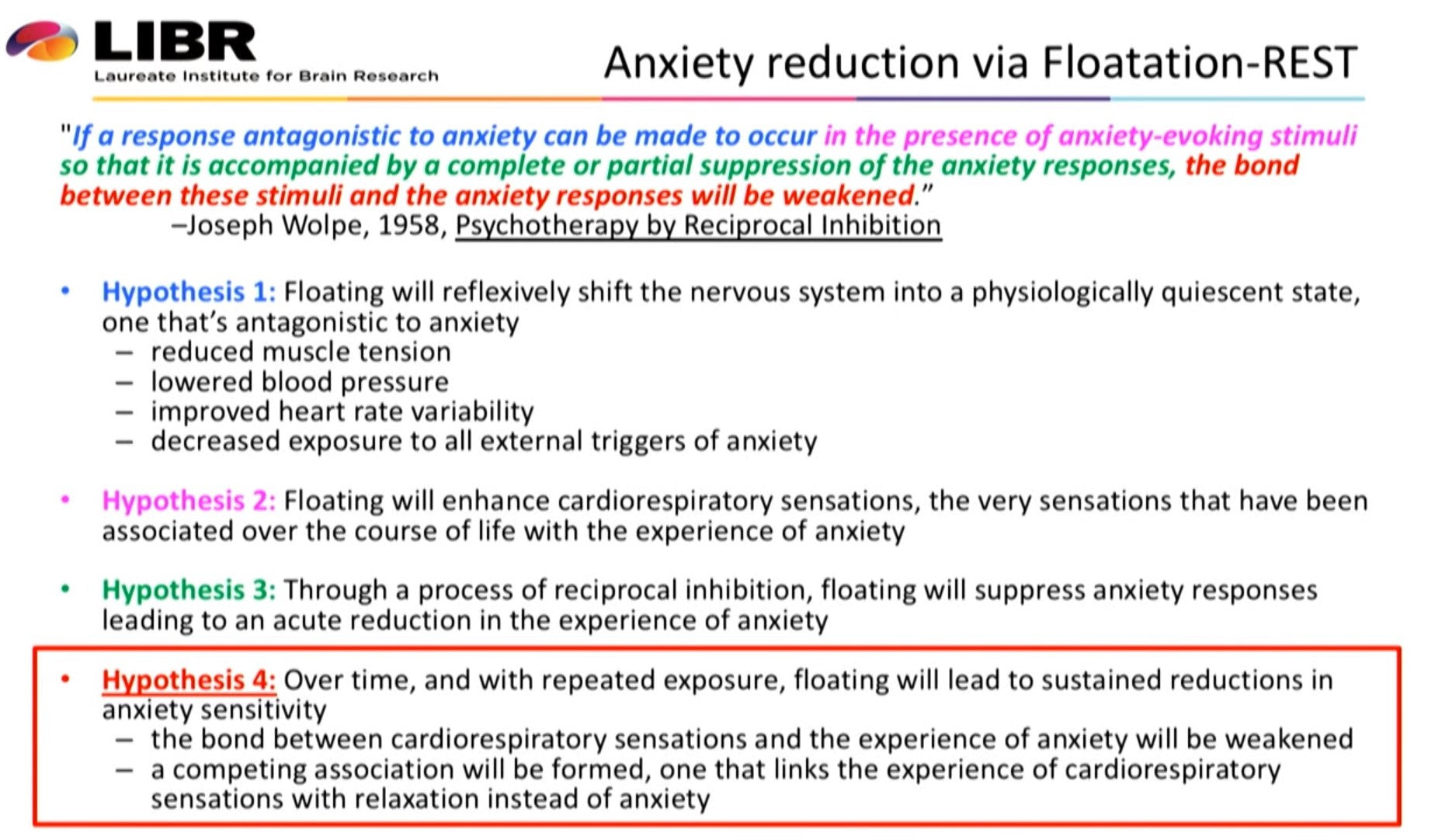
Float Away Anxiety - Excerpt 17
The first study on floating is to be funded by the U.S. National Institute of Heatlth, NIH.
From the work of Joseph Wolpe, one of the most influential researchers in behavior therapy, come four hypotheses related to floating and anxiety symptoms. (Wolpe's work has already been discussed in detail in excerpt 12.)
The fourth hypothesis is the most important for all of us:
"Over time, regular floating leads to a sustained decrease in anxiety symptoms."
(Your sensitivity to internal sensations in anxiety such as your heart rate and breathing will decrease.)
-> The link between these sensations and the experience of anxiety will be weakened.
-> An opposite association will be formed, one that links the experience of these sensations to relaxation rather than anxiety.
This hypothesis, if true, will explain why floating has effects that can last longer than 24 hours. Effects that are visible in real life, such as the special sports performance, overcoming public speaking, and so on. It can be visible in personal engagement in any domain of life.
To really know if this hypothesis is true, long-term controlled tests with subjects must be done. This can take months to years. Feinstein submitted this to the NIH and they are considering subsidizing it.
Getting this subsidized by the government was just a dream five years ago and now it is going to happen for the first time in history!
The 4 hypotheses:
- Floating will reflexively shift the nervous system into a physiologically quiescent state, one that's antagonistic to anxiety
- Floating will enhance the cardiorespiratory sensations, the very sensations that have been associated over the course of life with the experience of anxiety
- Through a process of reciprocal inhibition, floating will suppress anxiety responses leading to an acute reduction in the experience of anxiety
- Over time, and with repeated exposure, floating will lead to sustained reductions in anxiety sensitivity.
This is the 17th excerpt of 18 out of Dr Justin Feinstein's talk at Float Conference 2018, Float Away Anxiety. Research results can be found at:
https://www.clinicalfloatation.com/

